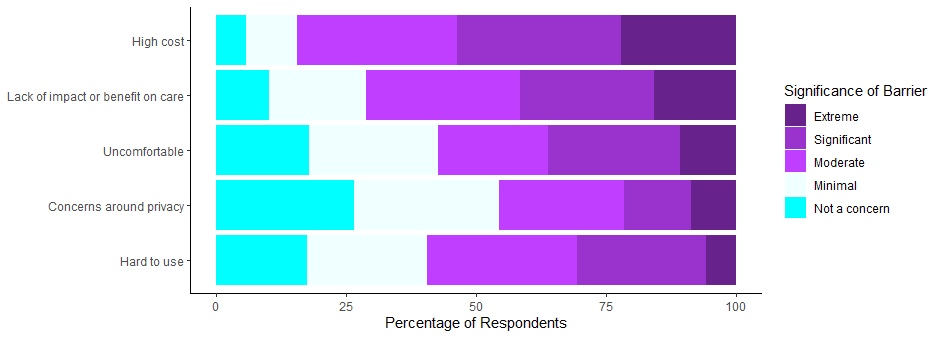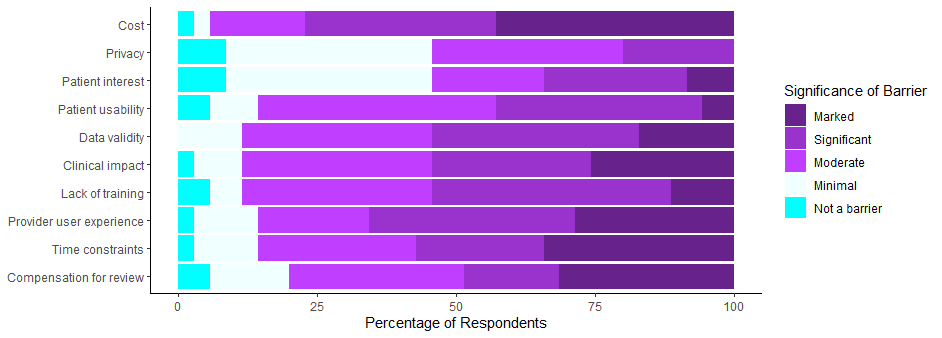Category: Technology
Objective: To develop a better understanding of the current use of consumer and medical wearable monitoring devices in the clinical management of PD and to gain insight into why that current state exists.
Background: Interest in wearable device use in Parkinson’s Disease (PD) has grown rapidly with many compelling studies supporting diagnostic and therapeutic uses. Concurrently, consumer devices have proliferated and their role in health and wellness has expanded. However, incorporation of consumer and medical wearable devices into medical care has in our experience been limited. We therefore sought to assess the validity of these perceptions and to gain insight into why current usage is what it is in PD.
Method: An anonymous online survey of individuals with PD in the USA was conducted from July 9th, 2023, to Jan 8th, 2024, with 298 completed responses collected. An associated anonymous online survey of neuroscience specialists was also conducted with 35 complete responses obtained.
Results: For respondents with PD, greater than 90% were interested in new technologies and 67% had experience using consumer wearable devices. Only 24% were using consumer devices for disease management and many functions were not fully utilized. Medical wearable device use was very limited with only 8% having used a device. For provider respondents, medical wearables were used in a clinical setting by 20% of respondents. For those responses the median number of patients they used devices on was 3. Perceived barriers to device use were numerous, with cost and impact on care most notable (Figure 1), but this was contrasted by low rates of device discontinuation and reasonable tolerability. Provider’s perceived barriers to wearable device use suggested systemic and provider specific barriers to be more substantial than patient barriers (Figure 2).
Conclusion: This study demonstrates that there exists a group of individuals with PD who are motivated and experienced with consumer wearable device use. However, even among this group, wearable device use for the explicit purpose of managing PD is limited, especially for medical wearable devices. While patient related factors are likely contributing to low usage, systemic and provider level barriers may play a larger role.
Patient barriers to wearable use in PD (n=298).
Provider barriers to wearable use in PD (n=35).
To cite this abstract in AMA style:
S. Hirczy, Y. Lin, C. Zabetian. The Current State of Wearable Device Use in Parkinson’s Disease (A Survey of Individuals with Parkinson’s and Specialist Clinicians) [abstract]. Mov Disord. 2024; 39 (suppl 1). https://www.mdsabstracts.org/abstract/the-current-state-of-wearable-device-use-in-parkinsons-disease-a-survey-of-individuals-with-parkinsons-and-specialist-clinicians/. Accessed February 11, 2026.« Back to 2024 International Congress
MDS Abstracts - https://www.mdsabstracts.org/abstract/the-current-state-of-wearable-device-use-in-parkinsons-disease-a-survey-of-individuals-with-parkinsons-and-specialist-clinicians/


